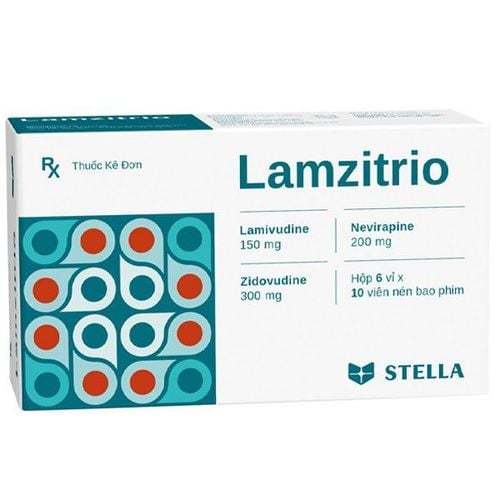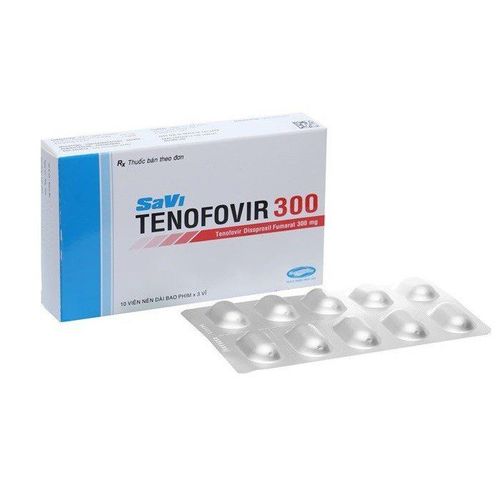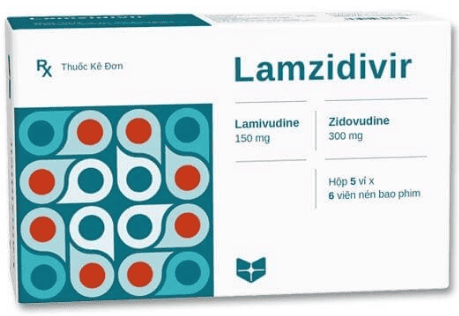This is an automatically translated article.
Efava drug is manufactured and registered by Central Pharmaceutical Joint Stock Company 1 - Pharbaco, belongs to the group of drugs to treat parasites, anti-infectives, antivirals, antifungals. So what is Efava and how is it used?
1. What is Efava?
Efava medicine has the main ingredient containing the active ingredient Emtricitabine with a concentration of 200mg, made in the form of hard capsules, presented in a box of 3 blisters, each blister has 10 capsules.
2. Effects of Efava
Infection can still occur with the use of the drug, although the risk is quite low due to the effectiveness of antiretroviral therapy. However, patients need to consult a doctor to take effective measures to prevent infection.
Efava is not a way to treat HIV infection, while taking it can still develop infections or other diseases related to HIV infection.
Efava is indicated for use in the following cases:
Emtricitabine in Efava is indicated in combination with other antiretroviral drugs in the treatment of human immunodeficiency virus type 1 (HIV-1) infection in adults. and children older than 4 months. Efava is suitable for patients weighing 33 kg or more.
3. How to use and dose Efava
How to use Efava:
Efava is made in the form of hard capsules, taken orally. When taking, patients need to swallow whole tablets, the time to use the drug does not depend on the meal, can be taken before, during or immediately after a meal. Dosage of Efava:
In adults: 200mg/day. In children > 4 months of age, adolescents < 18 years of age and weighing at least 33 kg who can swallow hard capsules: 200 mg/day. Dosage should be reduced in patients with impaired renal function, based on creatinine clearance (ml/min): Creatinine clearance 30 to 49: 200 mg every 48 hours. Creatinine clearance 15 to 29: 200mg every 72 hours. Creatinine clearance <15: 200mg every 96 hours. It is recommended that patients always adhere to the treatment dose prescribed by the doctor, this helps ensure high effectiveness, reducing the risk of resistance to treatment. Patients should not arbitrarily change or adjust the dose without consulting the doctor.
Missed dose and treatment:
During the use of the drug, if the patient forgets to take a dose, they can take the missed dose within 12 hours, then continue to use the next dose as indicated. If it is less than 12 hours before the next dose is missed, skip the missed dose and continue with the next dose as usual. Never take a double dose of the missed dose.
4. Undesirable effects of Efava
Like other drugs, during the use of Efava, patients may experience undesirable effects as follows:
Very common side effects such as: Diarrhea, headache, feeling nauseous, muscle weakness and pain. Common side effects include: Weakness, trouble sleeping, dizziness, abnormal dreams, discomfort after eating, nausea, stomach pain, itching, rash, skin color changes, allergic reactions, sensations pain, low white blood cell count, high blood sugar and triglycerides (fatty acids), pancreas and liver problems. Less common side effects such as: Swelling of the face/tongue/lips/throat, anemia. Advise patients during the use of Efava if they experience any abnormal signs, they should stop using the drug and immediately notify the treating doctor for timely and effective instructions.
5. Efava drug interactions
Efava should not be combined with Zalcitabine or Lamivudin in the treatment of HIV infection. Co-administration of Efava with drugs that are excreted in the active tubular form may increase plasma concentrations of Emtricitabine.
6. Notes when using Efava
Contraindications of Efava:
Efava is not contraindicated in patients with a history of allergy to Emtricitabine or any of its excipients. Use with caution in the following cases:
Close supervision is required in the treatment of HIV-infected patients with comorbidities, as treatment with Efava may continue to initiate complications of infection. HIV and opportunistic infections. Monitor renal function and clinical response to patients on prolonged treatment with Efava. Treatment should be discontinued in the presence of symptoms of metabolic or lactic acidosis, hyperlactic acidosis, rapidly elevated aminotransferase levels, or progressive liver enlargement. Efava should be used with caution in patients with hepatitis, liver enlargement or risk factors for fatty liver and liver disease. Do not use for pregnant women and nursing mothers, it is necessary to consult a doctor and compare the benefits and risks when using Efava for these subjects. For patients over 65 years of age and children < 4 months of age, there are no reports or studies of efficacy and safety in these subjects, caution when appointing Efava. Efava may cause dizziness, affect the ability to drive and use machines, in patients with related occupations, this medicine should be used with caution.
7. Storing Efava
Store Efava in a cool, dry place, avoid direct sunlight and high temperature, because these agents can change the active ingredients in the medicine. The appropriate Efava drug storage temperature is below 30 degrees Celsius. It is necessary to see the expiry date before use, observe the factors of color and properties of the tablet. Avoid using drugs that have been modified or expired. Keep out of reach of children to prevent misuse. The article has provided information about the uses, doses and precautions when using Efava. To ensure safety for your health and maximize the effectiveness of your treatment, you need to take Efava exactly as directed by your doctor.
tags:
Please dial HOTLINE for more information or register for an appointment HERE. Download MyVinmec app to make appointments faster and to manage your bookings easily.













